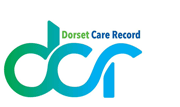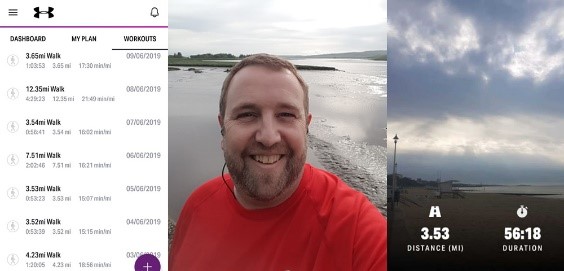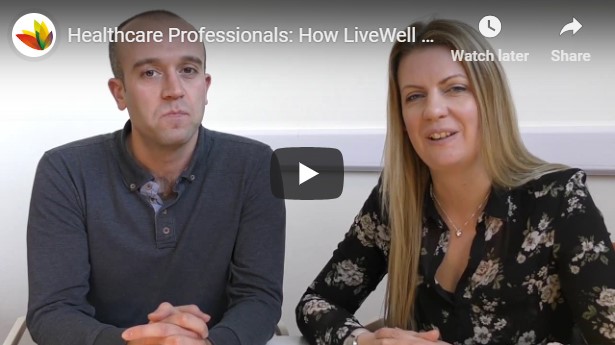Below is a brief guide to some common illnesses and how to treat them:
Colds
There is still no cure for the common cold. Take plenty of fluids plus aspirin or paracetamol if you have a headache or fever. (NB: Aspirin should not be given to children under 16 years of age.)
Diarrhoea and Vomiting
This is a common condition, over 90% of cases being caused by a virus which is cleared by the body naturally. With vomiting, take or give nothing by mouth except clear fluids for at least four hours after vomiting has ceased. Introduce fluids slowly at first. With diarrhoea drink plenty of fluids.
A suitable mixture to drink can be made using one pint of water, two teaspoons of sugar plus a quarter teaspoon of salt. In very young children, if symptoms persist for more than 6 hours, consult your doctor.
Back Pain
Back pain causes 13 million working days to be lost in Britain each year. The spine, being made up of 24 fragile bones and associated cartilage and tendons, supports the whole weight of the upper body, and, therefore, it is understandable that it sometimes goes wrong. Because of the complex nature of the spine it is advisable to consult your doctor if back pain persists for more than a few days.
If, as is usual, the pain has been caused by abuse i.e, lifting too heavy weights etc., be sensible and take things easy. Take care to sit as upright as possible with a support for the small of the back. Take aspirin or paracetamol which will not only relieve the pain but also help the inflammation.
Burns
Apply large quantities of cold water to the affected areas as soon as possible and maintain this until the pain subsides. This may take as long as 15 minutes. If the skin is unbroken but blistered, apply a loose, dry dressing. If the burn is larger than 4 – 5 inches in diameter, or the skin is broken, consult your doctor as soon as possible.
Stomach Ache
Most attacks are not serious and are usually caused by indigestion or wind. In the case of indigestion, a teaspoon of bicarbonate of soda in half a glass of water will help. If the pain lasts for more that 8 hours or increases in intensity you should consult your doctor.
Sprains
Firstly apply a cold compress, containing ice if possible, for 15 to 30 minutes to reduce the swelling.
Apply, firmly, a crepe bandage and give the sprain plenty of rest until all discomfort has subsided. Further strain will inevitably lead to further swelling and a longer recovery period.
Nose Bleeds
Sit in a chair (leaning forward with your mouth open) and pinch your nose just below the bone for approximately 10 minutes, by which time the bleeding should have stopped. Avoid hot drinks or hot food for 24 hours. If symptoms persist consult your doctor.
Minor Cuts and Grazes
Wash the wound thoroughly with water and a little soap. To stop the bleeding apply a clean handkerchief or dressing firmly to the wound for about 5 minutes. Cover with a clean dry dressing.
Sunburn
Treat as for other burns with cold water to remove the heat. Calamine lotion will relieve the irritation whilst paracetamol will also help. Children are particularly susceptible to sunburn and great care should be taken to avoid over exposure to the harmful effects of the sun.
Insect Bites / Stings
Antihistamine tablets can be obtained from the chemist without prescription and will usually relieve most symptoms. (nb: Bee stings should be scraped away rather than “plucked” in order to avoid squeezing the contents of the venom sac ito the wound.)
Head Lice
These creatures, contrary to popular belief, prefer clean hair and are, therefore, not a sign of poor personal hygiene. Please speak to the Health Visitors who can advise the best treatment.
Influenza
In October every year we offer, completely free, flu vaccinations to our patients. It is strongly recommended for high risk patients eg. those with heart or chest disease, diabetics or those who work in institutions or nursing homes. Please enquire at reception for details.











 We have several new resources on the
We have several new resources on the  Find an Activity
Find an Activity

 Managing life with a health condition isn’t always easy. We know that understanding and keeping track of medications, treatments, tests and appointments with healthcare professionals are important, but also that a health condition affects our emotions, how we feel about ourselves, our social life, hobbies and day to day routines at home. Feeling confident managing all of that can be a challenge.
Managing life with a health condition isn’t always easy. We know that understanding and keeping track of medications, treatments, tests and appointments with healthcare professionals are important, but also that a health condition affects our emotions, how we feel about ourselves, our social life, hobbies and day to day routines at home. Feeling confident managing all of that can be a challenge.



